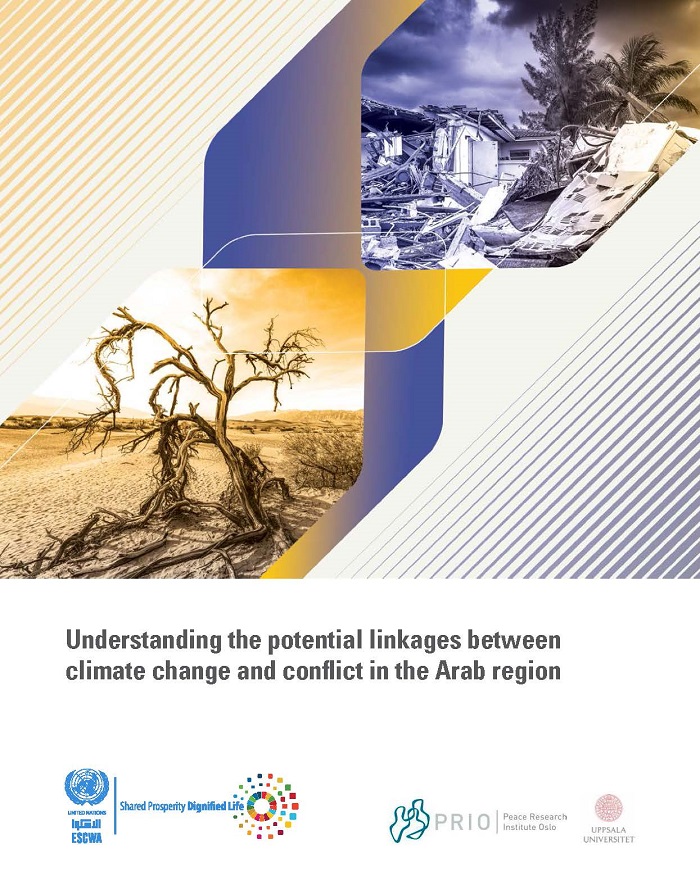
Resource Type: ESCWA publication
Member State: Algeria, Bahrain, Egypt, Iraq, Jordan, Kuwait, Lebanon, Libya, Mauritania, Morocco, Oman, State of Palestine, Qatar, Saudi Arabia, Somalia, Sudan, Syria, Tunisia, United Arab Emirates, Yemen
Document Language: English
Understanding the Potential Linkages between Climate Change and Conflict in the Arab Region
The Arab States are affected by a wide range of environmental challenges exacerbated by current and projected impacts of climate change, including, among others, depletion of scarce natural resources such as water and arable land, increasing pollution levels, and the growing number and magnitude of extreme weather events. At the same time, the Arab region has been a hotspot for conflicts during the last decades. This highlights the need among policymakers and practitioners of conflict prevention and peacebuilding to better understand how climate change might contribute to current or future dynamics of conflict.
This report provides a conceptual framework for analysts and policymakers in the region that shows how the loss of livelihood, macroeconomic contraction, resource competition, migration, poor governance, and other social processes (mechanisms) spurred by climate risk are more likely to increase conflict risk when occurring in certain contexts.